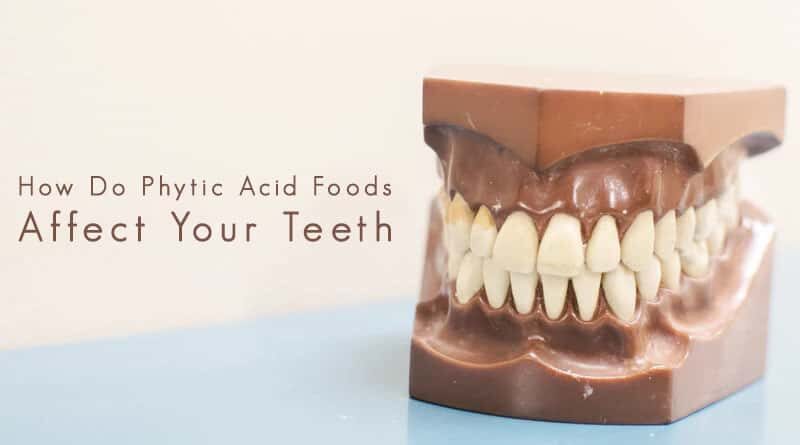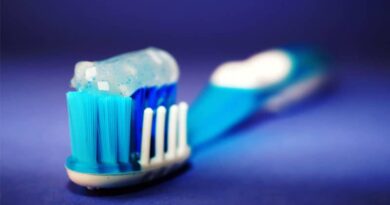How Do Phytic Acid Foods Affect Your Teeth?
Phytic acid is a nutrient that may help you prevent many diseases, but it also may lead to tooth decay. This “anti-nutrient” is contained in plant seeds, roots, and bran, which might have a huge impact on your dental health.
Phytic acid affects our body’s ability to absorb the nutrients your teeth need. Phytic acid foods are all plant-based, therefore you may be getting more of this compound than you think. Phytic acid can be harmful to your teeth as it worsens the absorption of calcium, magnesium(1), and phosphorus. These nutrients are all essential to your oral health.
Phytic acid occurs in plants and especially cereal grains that can form insoluble complexes with calcium, iron, zinc, and other nutrients and thus interfere with their absorption. Grains and seeds need this nutrient to store phosphorus in their cells.
On the other hand, phytic acid is a useful antioxidant. According to one scientific review, this compound can reduce diabetes symptoms, fight heavy metal toxicity, reduce kidney stones, improve heart disease, treat HIV-1, and even kill cancer cells. Don’t be scared to eat phytic acid foods.
Your body produces an enzyme called phytase helps to break these bonds and get more of the nutrients. Phytic acid interferes with magnesium, copper, calcium, zinc, iron, niacin, and phosphorus absorption.
However, we still need a phytate. When your body is healthy and you’re keeping a proper diet, your digestive system will excrete phytates to stay balanced. Phytic acid is both good and bad. You need a little of it, but too much phytate can lead to problems like cavities.
Table of Contents
Phytic Acid and Teeth Cavities
Your body requires calcium, phosphorus, copper, and vitamin D to build and restore teeth and bones. A lack of these minerals results in deterioration of the bones that protect teeth in humans.
If you’re lacking both vitamin D (which up to 90 percent of people are) and calcium, your teeth are not able to remineralize properly. The only way to avoid cavities is to remineralize your teeth more than you demineralize them.
Does this mean that cavities can heal themselves? Yes, but only if your body has the necessary amount of calcium or vitamin D. If you lack the nutrients you need, your cavities won’t heal and you may even develop new ones. Low levels of copper and vitamin D are also linked to severe gum disease. Consult your family dentist in order to find out whether you have signs of nutrient deficiencies.
Read: Foods that Damage Teeth
Common food sources of phytic acid:
- Whole Grains
- Oats
- Rice
- Barley
- Rye
- Legumes
- Millet
- Cowpeas
- Kidney Beans
- Lentils
- Broad peas
- Wild rice
- Walnuts
- Almonds
- Brazil nuts
- Cashew nuts
- Hazelnuts
- Macadamia nuts
- Linseed
- Sesame seed
- Rapeseed
Decrease the amount of phytic acid in foods
1. Soak your grains
Soaking stimulates grains to begin the germination process. This releases phytase and breaks the bond between phytic acid and minerals. Since many cereal grains are also chemically treated, don’t forget to rinse them before soaking.
Read: Home Remedies for Cavities
2. Take a phytase supplement
If you have a nutrient deficiency or at high risk, start taking a phytase supplement. Your body doesn’t produce a lot of phytase(2) on its own, therefore this supplement will help you get rid of phytic acid more effectively.
Read: Teeth Whitening Methods
3. Try fermentation of grain products
Fermentation of flour and other grain products can help to separate phytate compounds. Next time you’re at a health food store, buy cultured or fermented grains, nuts, and seeds.
4. Snack on phytic acid foods
Phytate doesn’t stick around very long in the body. If you have a snack of phytic acid food long before meals, it’s unlikely that the phytic acid would interfere with nutrient absorption. Just eat nuts and seeds alone.
There are some categories of people who are at high risk of nutrient deficiencies caused by phytic acid:
- Children under the age of 6
- Pregnant women
- People with iron deficiency
- People who eat strictly vegetarian or vegan diets
People with iron deficiency(3) are very sensitive to phytic acid. Vegans and vegetarians may also have nutrient deficiencies as their diets mostly consist of plant-based products.
Read: Tea Tree Oil for Tooth Pain
Faq
1. is phytic acid bad for teeth
It can be harmful to your teeth as it absorbs of magnesium, calcium, and phosphorus.




